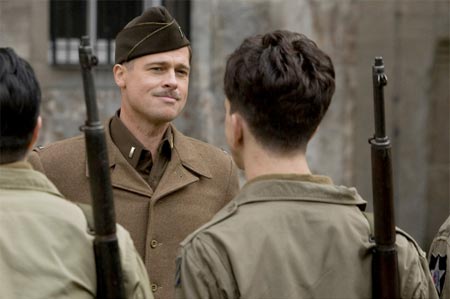Alan_Joshua_Gerstle Movie Stills
Snippets on Film: Filmmakers, Cinematographers, and Photographers
Friday, June 2, 2023
Saturday, April 22, 2023
Saturday, April 9, 2022
Monday, March 14, 2022
The Meaning of "The Wrestler" with Mickey Rourke
I'm not a wrestling fan nor a Mickey Rourke fan. I'm a movie fan and a literature fan. I really can't comprehend why people don't understand the core meaning and beauty of this film. It has nothing to do with professional wrestling. It has to do with reaching the roots of great drama, and that's why it is great.
There are more complex and elegant plots in film, production values, and more intriguing characters in lots of good films--independent, Hollywood, and foreign, but The Wrestler--through whatever spirit passed through the vehicle of Mickey Rourke's soul--turns out to be a wonderful film for anyone who values the roots of tragedy and the roots of the human condition.
Rabbit Run is a book like that; The Stranger is a book like that; Othello is a play like that. None of these examples are particularly long or complex in relationship to their genres. For example, Othello is perhaps Shakespeare's most simple tragedy.
But The Wrestler, like superior works of dramatic art--and with Rourke at the helm--hits humanity where it matters: it shows us our vulnerability; our desire for love and acceptance (even if we aren't good at getting them right) with other people and with society; it depicts The Wrestler's wish for dignity and thus our own natural wish for dignity, for recognition, for home, to be cared for and loved unconditionally--that is what the Wrestler wants.
And he is no different from people who look nothing like him or live in worlds that ostensibly don't appear like his. The Wrestler takes steroids. Well, lots of women destroy their feet by wearing high heels. Plastic surgery for both sexes is an attempt to look younger or better, but in the end is all about being loved.
Finding a home, a refuge, a sympathetic soul who will care about us unconditionally are values the Wrestler shares with most of us. He just is at a loss how to find them, and this is ironic because that is just the way he is able to love others in his childlike way--whether they be fellow wrestlers, kids in the neighborhood, or old ladies at the deli counter. The Wrestler's true opponent is a world that doesn't have a place for the type of 'outlier' he is. There is a reference to his being the 'sacrificial ram' early on in the film, and it's a perfect metaphor. He is at heart an innocent, so innocent that when a girl picks him up at a bar and asks if he wants to 'party', he isn't quite sure what she means. Randy the Ram is kind to everyone he meets. He just hasn't learned society's game.
This is not a complicated film , but the greatest speeches, odes, portraits, ballets, etc., don't have to be complicated, nor should they. It's the intensity that counts and if the intensity remains after the show is over, who needs anything longer? Yea, you can ask for more in art, but you just might get a whole lot less. And if you don't understand what this movie is REALLY about, you are missing a whole lot.
Response to Inglorious Basterds - And what's with the incorrect spelling?
I will give a 'reading' of this film as briefly as I can. I can't believe I'll spoil it for anyone who hasn't seen it, but maybe at least some who have seen it will re-consider their assessment. I found Inglourious Basterds to be one long cinematic joke--an ironic joke. Nothing in this movie should be interpreted without considering that Tarantino wants you to understand you're watching a movie. The problem is that many people who watch movies don't think about the fact they're watching one, or forget they're watching one. Tarantino wants you to be aware of this--what better way than to create some very "bad" cinematic moments? IN other words, this movie is a satire of movie convention. I think that is why there are a number of 'sitting around the table' scenes that are are very long and tedious. They are not meant to be believable as cinematic art because if they were they would be defeating the purpose of the film. They're artifice and the best way to demonstrate artifice is to point it out directly. Goddard did this when he filmed light cables that threaded their way through a mise en scene right where the actors were performing. Tarantino does it here by creating both utter cliches and utterly 'bad' filmmaking. That a German officer would speak perfect French to a French farmer, then stops, says he has limited French-speaking abilities, and then speaks in English to the French farmer who happens to speak English is pretty goofy, and it's boring. But It's meant to be. When a Nazi hunter doesn't order his men who are sitting around a jeep to run down and kill a Jewish girl while she is running through the countryside--and instead had a grin on his face is equally absurd--the suggestion is that they will meet again one day. How does he know this? Because it's a movie.
But that's OK, because we're not seeing an attempt to create a cinematic version or interpretation of historical events because all such movies are fabrications. All movies are fabrications, of course, and Tarantino is trying to remind the viewers of the fact. We are seeing an exercise in how a filmmaker controls what goes into the art. If Tarantino wants to create a bad scene, then he does so. It's as if he were saying, "I'm so in command of the grammar of cinema that I I'll make this scene too long, contrived, cliched, dull, etc., just to show I know the good and bad aspects of cinema.
He even has one actor, Mike Myers, play a cliched version of his own cliched actor's persona. He's not portraying a British officer. He's portraying Mike Myers. The range of jokes in the film go from the sublime to the ridiculous, the latter evident when Brad Pitt tries to fake an Italian accent at a gathering of SS officers. That is straight out of The Three Stooges or Mel Brooks. Additionally, the alteration of the Nazi sniper spy movie and the subsequent flames leaping around the movie screen have all the production values of an Ed Wood movie. You don't see "Plan 9 from Outer Space" because it's a good movie. You see it because it's a bad movie, although you might say it's so bad that it's good.
I'm not suggesting that I'm a Tarantino fan. I really don't care what movies he makes or why. I haven't seen "Kill Bill" which I believe he directed. This stuff isn't rocket science, so I wouldn't use such words as 'genuis' or 'brilliant.' But at least it's a change of pace from the usual Hollywood garbage.
You could take every scene and shot, and about every line of dialogue from this film and find a meta-communicative aspect. That's why it would be way too tedious to truly critique the film. It would take a thousand pages or so. But you get the idea. Now go find a few 'bad jokes' of your own if you have the inclination. BTW, what better way to show the artifice of film titles, and in particular, the way titles of films are used to stand out as a form of a film's PR than to misspell one?
Friday, March 11, 2022
Three Burials of Melquiades Estrada - Tommy Lee Jones Shines as Director
The Three Burials of Melquiades Estrada
This is a great film replete with suggestive symbols of grace, redemption, magical thinking, loss and the boundaries that are personal, cultural, and spiritual, not merely geographic. Ironically, when a dreamless, aimless Barry Pepper, who seems already past his prime at 30 becomes a member of the border patrol, he shoots an anonymous Mexican (Jones's blood brother so to speak)--and not even having the sympathy to try to help him--in fact, not having the humanity to even touch him as he lies bleeding to death--is more concerned about his job than another human being. In this case the Mexican to him is merely a type, not really a person. On the other hand Tommy Lee Jones, who sees the person behind the persona, is more concerned about the soul than the outward trappings of language or labels. When he discovers his friend dies at the hands of Pepper, Jones sits in his friend's modest shack just to feel his presence--to commune with his dead friend, as a means of coming to terms with his grief.
Faced with the indifferent locals who would rather save their butts than save their souls, Jones takes it on himself to become the humanizing agent in a mercenary world. Forcing the border guard at gunpoint to accompany his friend to his final burial place, he traverses a bleak land that could be the Eliot's wasteland or the underworld. When he brings his friend home, he finds to his surprise, this beloved Mexican town is not what it is described to be. But as he understands that sometimes the imagination fulfills a purpose that life cannot, dignifies the death of his friend and redeems the humanity of the border guard. This film shows how human relations matter; how the electronic media are mere illusion producing devices; and even an old cowboy's body can find the fountain of youth by sticking to basic principles of human decency and understanding, and even the most direloneliness can be overcome even miles from home.
Subscribe to:
Posts (Atom)




